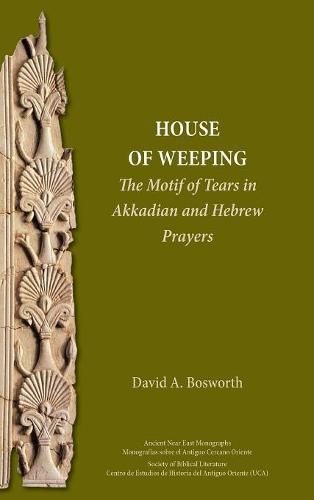Readings Newsletter
Become a Readings Member to make your shopping experience even easier.
Sign in or sign up for free!
You’re not far away from qualifying for FREE standard shipping within Australia
You’ve qualified for FREE standard shipping within Australia
The cart is loading…






This title is printed to order. This book may have been self-published. If so, we cannot guarantee the quality of the content. In the main most books will have gone through the editing process however some may not. We therefore suggest that you be aware of this before ordering this book. If in doubt check either the author or publisher’s details as we are unable to accept any returns unless they are faulty. Please contact us if you have any questions.
David Bosworth draws on modern research on weeping to understand references to the petitioner’s tears in biblical and other ancient Near Eastern prayers. Weeping reflects helplessness and being overwhelmed with emotion, and tears can motivate others to help. Similarly, people turn to prayer at times of extreme distress; therefore, weeping and prayer reinforce one another as strategies to move the deity to offer assistance. Bosworth finds that prayer that mention weeping also indicate that the deity is angry, so tears are a means of calming divine wrath. The book includes comparisons of Hebrew Psalms and Akkadian prayers with reference to modern scientific research on weeping.
$9.00 standard shipping within Australia
FREE standard shipping within Australia for orders over $100.00
Express & International shipping calculated at checkout
This title is printed to order. This book may have been self-published. If so, we cannot guarantee the quality of the content. In the main most books will have gone through the editing process however some may not. We therefore suggest that you be aware of this before ordering this book. If in doubt check either the author or publisher’s details as we are unable to accept any returns unless they are faulty. Please contact us if you have any questions.
David Bosworth draws on modern research on weeping to understand references to the petitioner’s tears in biblical and other ancient Near Eastern prayers. Weeping reflects helplessness and being overwhelmed with emotion, and tears can motivate others to help. Similarly, people turn to prayer at times of extreme distress; therefore, weeping and prayer reinforce one another as strategies to move the deity to offer assistance. Bosworth finds that prayer that mention weeping also indicate that the deity is angry, so tears are a means of calming divine wrath. The book includes comparisons of Hebrew Psalms and Akkadian prayers with reference to modern scientific research on weeping.